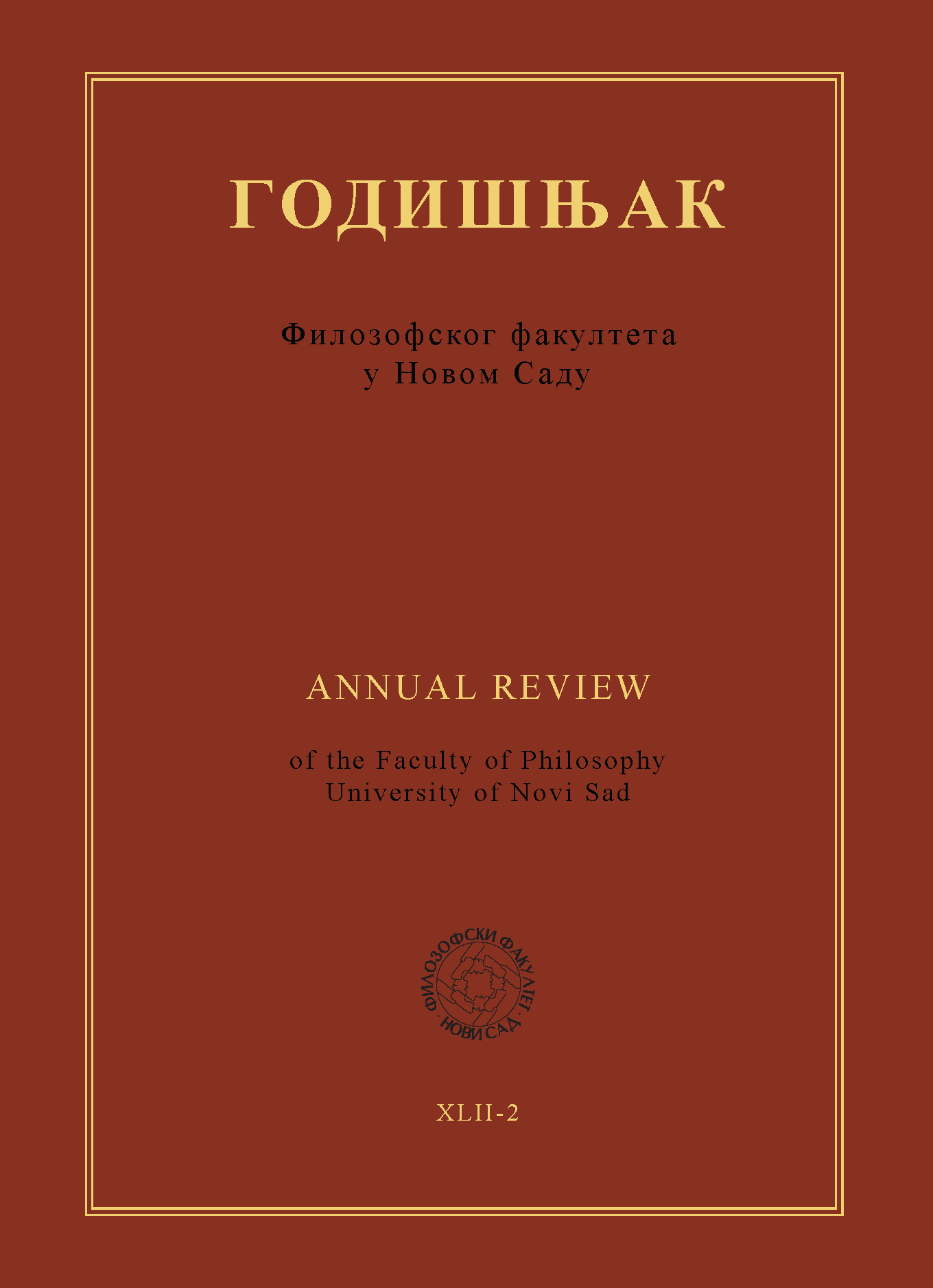ИСПИТИВАЊЕ СПОНТАНОГ УКЉУЧИВАЊА РОДИТЕЉА У ОБРАЗОВАЊЕ ДЕЦЕ НА ПОЧЕТКУ ШКОЛОВАЊА
Главни садржај чланка
Сажетак
Рад је усмерен на испитивање активности којима се родитељи спонтано укључују у образовање своје деце и њиховог доприноса напредовању ученика на почетку школовања. Истраживањем је обухваћено 1439 ученика првог разреда из 18 школа Републике Српске и исто толико њихових родитеља. Анкетирањем родитеља испитивана је заступљеност различитих типова активности у кругу породице и у комуникацији са школом, док је напредовање ученика на почетку школовања праћено скалом процене остварености исхода учења и развоја у четири развојне сфере. Показало се да је највише спонтаних активности којима се родитељи укључују усмерено на осамостаљивање деце и подршку њиховом моторичком развоју, а потом и на савладавање школских задатака и обавеза. Притом је укљученост мајки у активности оријентисане на школу у позитивној вези са напредовањем ученика у сфери интелектуалног развоја, као и развоја говора, комуникације и стваралаштва, док је укључeност очева у моторичке активности и осамостањивање деце у позитивној корелацији са напредовањем ученика у свим развојним сферама. Неопходно је јачати свест родитеља о значају њихове укључености у образовање деце кроз различите типове активности већ од најранијег детињства и посебно током првих година школовања, у чему важну улогу имају све васпитно-образовне установе.
Downloads
Metrics
No metrics found.
Детаљи чланка
Референце
Bracken, S. S., & Fischel, J. E. (2008). Family reading behavior and early literacy skills in preschool children from low-income backgrounds. Early Education and Development, 19(1), 45-67.
Carter, S. (2002). The Impact of Parent/Family Involvement on Student Outcomes: An Annotated Bibliography of Research from the Past Decade. The Consortium for Appropriate Dispute Resolution in Special Education - CADRE. ED476296
Catsambis, S. (2001). Expanding knowledge of parental involvement in children’s secondary education: connections with high schools seniors’ academic success, Social Psychology of Education,5, 149-177.
Christenson, S. L., & Sheridan, S. M. (2001). Schools and families: Creating essential connections for learning. New York : Guilford Press.
Clark, C. (2009). Why fathers matter to their children’s literacy. London: National Literacy Trust. Preuzeto 5. oktobra 2016, sa http:// www.files.eric.ed.gov/fulltext/ ED513437
Collins, W. A., Maccoby, E. E., Steinberg, L., Hetherington, E. M., & Bornstein, M. H. (2000). Contemporary Research on Parenting: The Case for Nature and Nurture. American Psychologist, 55(2), 218-232.
Cooper, H. M., Lindsay, J. J., & Nye, B. (2000). Homework in the home: How student, family, and parenting-style differences relate to the homework process. Contemporary Educational Psychology, 25(4), 464-87.
Davis-Kean, P. E. (2005). The Influence of Parent Education and Family Income on Child Achievement: The Indirect Role of Parental Expectations and the Home Environment. Journal of Family Psychology, 19(2), 294–304.
Desforges C., & Abouchaar, A., (2003). The Impact of Parental Involvement, Parental Support and Family Education on Pupil Achievement and Adjustment: A Literature Review. DfES Research Report 433. Preuzeto 5. oktobra 2016, sa http://library.bsl.org.au/jspui/ bitstream/1/3644
Drake, D. D. (2000). Parents and families as partners in the education process: Collaboration for the success of students in public schools. ERS Spectrum, 18(2), 34-39. EJ609580.
Dubowitz, H., ... & Runyan, D. (2001). Father involvmenet and child functioning at age 6 years: a multisite study. Child Maltreat,6, 300-309.
Epstein, J. L. (1995). School/family/community partnerships: Caring for the children we share. Phi Delta Kappan, 701-712.
Epstein, J. L., ... & Frances L. (2002). School, Family, and Community Partnerships: Your Handbook for Action.Washington: Office of Educational Research and Improvement
Fantuzzo, J., Tighe, E., & Child, S. (2000). Family Involvement Questionnaire: A Multivariate Assessment of Family Participation in Early Childhood Education. Journal of Educational Psychology, 92(2), 367-376.
Izzo, C.V., Weissberg, R. P., Kasprow, W. J., & Fendrich, M. (1999). A longitudinal assessment of teacher perceptions of parent involvement in children's education and school performance. American Journal of Community Psychology, 27, 817-39.
Keys, A. (2014). Family Engagement in Rural and Urban Head Start Families: An Exploratory Study. Early Childhood Education Journal, doi: 10.1007/s10643-014- 0643-8
Klemenović, J. (2014). Spremnost za školu u inkluzivnom kontekstu. Novi Sad: Filozofski fakultet Univerziteta u Novom Sadu.
McNeal, R.B. (2001). Differential effects of parental involvement on cognitive and behavioural outcomes by socioeconomic status. Journal of Socio-Economics, 30, 171-179.
Ministarstvo prosvjete i kulture Republike Srpske (2006). Osnove programa predškolskog vaspitanja i obrazovanja- eksperimentalna verzija. Banja Luka: Ministarstvo prosvjete i kulture Republike Srpske. (ćirililica)
Okpala, C. O., Okpala, A. O., & Smith, F. E. (2001). Parental involvement, instructional expenditures, family socioeconomic attributes, and student achievement. The Journal of Educational Research, 95(2), 110-115.
Sanders, M. G., & Epstein, J. L. (2000). Building school-family-community partnerships in middle and high school. In M G. Sanders (Ed.), School students placed at risk: Research, policy, and practice in the education of poor and minority adolescents. Mahwah : Lawrence Erlbaum Associates. 339-61.
Sarkadi, A., Kristiansson, R., Oberklaid, F., & Bremberg, S. (2008). Fathers’ involvement and children’s developmental outcomes: A systematic review of longitudinal studies. Acta Paediatrica, 97, 153-158.
Simon, B. S. (2001). Family involvement in high school: Predictors and effects. NASSP Bulletin, 85(627), 8-19.
Spasojević, P., Pribišev Beleslin, T. i Nikolić, S. (2007). Program predškolskog vaspitanja i obrazovanja. Ministarstvo prosvjete i kulture Republike Srpske: Zavod za udžbenike i nastavna sredstva. (ćirililica)
Westmoreland, H., Bouffard, S., O’Carroll, K., & Rosenberg, H. (2009). Data collection instruments for evaluating family involvement. Preuzeto 5. oktobra 2016, sa http:// www.hfrp.org.
Winsler, A., Madigan, A. L., & Aquilino, S. A. (2005). Correspondence between maternal and paternal parenting styles in early childhood. Early Childhood Research Quarterly, 20, 1-12.
Yeung, W. J., Linver, M. R., & Brooks-Gunn, J. (2002). How money matters for young children’s development: Parental investment and family processes. Child Development, 73(6), 1861-1879.
Zellman, G. L., & Waterman, J. M. (1998). Understanding the impact of parent school involvement on children’s educational outcome. The Journal of Educational Research, 91 (6), 370-380.




